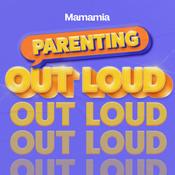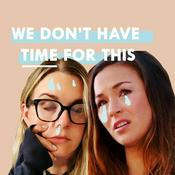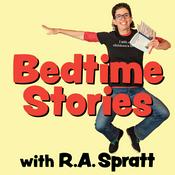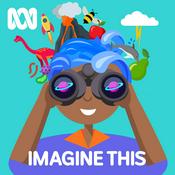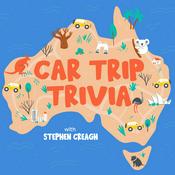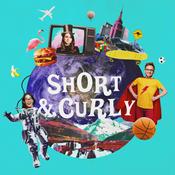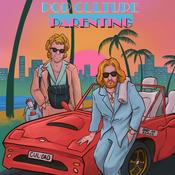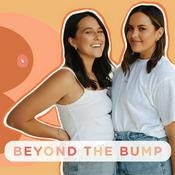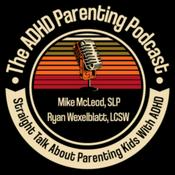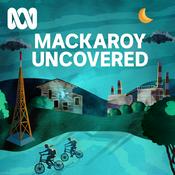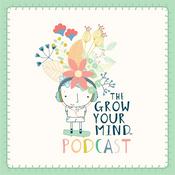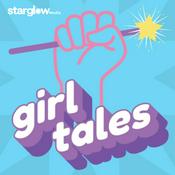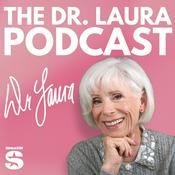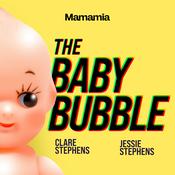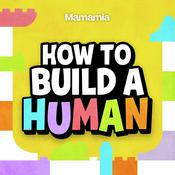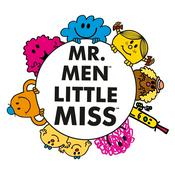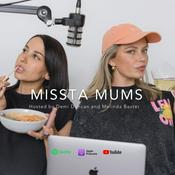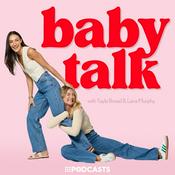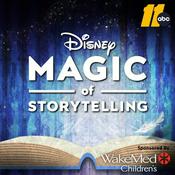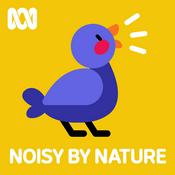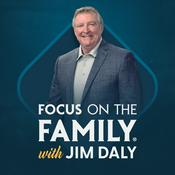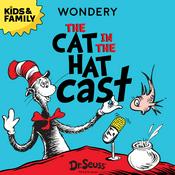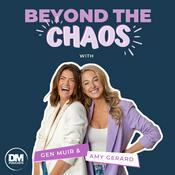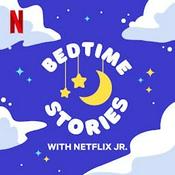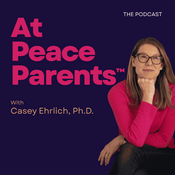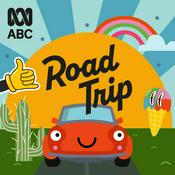10 episodes

Who's in your parenting village?
13/05/2025 | 33 mins.
Parenting babies is a universal experience, but every country and culture does it a little differently. What can we learn from different ways of raising children, especially when it comes to creating the supportive ‘village’ many of us crave? Global early childhood policy powerhouse Ana Nieto takes Kate and Amelia on a trip around the world, exploring some of the incredible ideas other countries are implementing, what we do well here and what more is needed to help parents and children thrive. Ana has 20 years’ experience working at the highest global policy levels for children’s agencies and foundations including UNICEF Headquarters, Plan International and Dubai Cares. She’s now based in Perth as Director of Early Years at the Minderoo Foundation, which has been successfully advocating why the early years matter and working to improve outcomes for all children in Australia. Some of the international programs Ana mentioned: Too Small to Fail Urban 95 Paid grandparents leave in Sweden Thanks for listening to the Words Grow Minds Parent Podcast! We love hearing from you, so please subscribe, rate and review this episode. For tools and tips to support your child’s development visit wordsgrowminds.org.au and follow us on Facebook and Instagram Thanks to PodBooth for producing this episode. We acknowledge this land that we record on as the traditional lands for the Kaurna people and that we respect their spiritual relationship with Country. We acknowledge the Kaurna people, as the custodians of the Adelaide region and that their cultural and heritage beliefs are still as important to the living First Nations people today. We extend this respect to the cultural authority of Aboriginal and Torres Strait Islander people from other areas of Australia and elders past, present and emerging.

Baby talk: Lessons from a speechie
06/05/2025 | 37 mins.
Do dummies affect speech development? Exactly how much should we be talking and reading to our babies? Which speech issues will resolve themselves and when should we be concerned? Kate and Amelia get a wealth of practical advice from Helen Smith, Senior Speech Pathologist at Children’s Health Queensland. Helen has over two decades of experience as a speech pathologist working in both health and educational settings. She has published research on supportive environments for language development and sharing universal messages with families. And she speaks from personal experience as a mother of four! All the online speech pathology resources Helen mentioned: Words Grow Minds family resources Read and Talk to Learn (RATTL) Communication milestones – Speech Pathology Australia First 5 Forever (QLD) Waiting for speech pathology (NSW Health) Thanks for listening to the Words Grow Minds Parent Podcast! We love hearing from you, so please subscribe, rate and review this episode. For tools and tips to support your child’s development visit wordsgrowminds.org.au and follow us on Facebook and Instagram Thanks to PodBooth for producing this episode. We acknowledge this land that we record on as the traditional lands for the Kaurna people and that we respect their spiritual relationship with Country. We acknowledge the Kaurna people, as the custodians of the Adelaide region and that their cultural and heritage beliefs are still as important to the living First Nations people today. We extend this respect to the cultural authority of Aboriginal and Torres Strait Islander people from other areas of Australia and elders past, present and emerging.

Why risky play?
29/04/2025 | 35 mins.
Play is the work of childhood, as the saying goes. But are we denying our children opportunities to learn valuable life skills by making modern-day play not just safe, but ‘too safe’? That’s the view of Dr Justin Coulson, who believes risky play is vital to raising confident and resilient children. In a conversation that definitely challenged Kate and Amelia, Dr Coulson explains what risky play is, and what it isn’t and how to lovingly let our children go a little. Dr Justin Coulson is the co-host and parenting expert on Channel 9's "Parental Guidance", the founder of happyfamilies.com.au and holds a PhD in psychology. Read his article The case for risky play in an age of overprotection. Justin also quotes the Canadian Paediatric Society’s view on risky play, you can read more here. Thanks for listening to the Words Grow Minds Parent Podcast! We love hearing from you, so please subscribe, rate and review this episode. For tools and tips to support your child’s development visit wordsgrowminds.org.au and follow us on Facebook and Instagram Thanks to PodBooth for producing this episode. We acknowledge this land that we record on as the traditional lands for the Kaurna people and that we respect their spiritual relationship with Country. We acknowledge the Kaurna people, as the custodians of the Adelaide region and that their cultural and heritage beliefs are still as important to the living First Nations people today. We extend this respect to the cultural authority of Aboriginal and Torres Strait Islander people from other areas of Australia and elders past, present and emerging.

It's Emma Memma!
22/04/2025 | 33 mins.
As one of Australia's most loved children’s performers, Dr Emma Watkins has made an extraordinary contribution to early childhood development. Emma shares with Kate and Amelia how her years performing live as the Yellow Wiggle inspired her to do more to support deaf and non-verbal children. She explains how she created Emma Memma for children of all abilities while completing her PhD, and assures us that daggy dancing and made-up songs are always okay! Emma is the author of several children’s books and has completed her Diploma of Auslan (Australian Sign Language), along with interpreter training through Deaf Connect. Follow Emma Memma! Emma Memma Official Website Stream music on YouTube, Spotify and Apple Music Instagram: @emmamemmamemma Facebook: EmmaWatkinsOfficial The deaf community resources Emma recommends: Deaf Connect Expression Australia Signbank Thanks for listening to the Words Grow Minds Parent Podcast! We love hearing from you, so please subscribe, rate and review this episode. For tools and tips to support your child’s development visit wordsgrowminds.org.au and follow us on Facebook and Instagram Thanks to PodBooth for producing this episode. We acknowledge this land that we record on as the traditional lands for the Kaurna people and that we respect their spiritual relationship with Country. We acknowledge the Kaurna people, as the custodians of the Adelaide region and that their cultural and heritage beliefs are still as important to the living First Nations people today. We extend this respect to the cultural authority of Aboriginal and Torres Strait Islander people from other areas of Australia and elders past, present and emerging.

The magic of infant interactions
15/04/2025 | 28 mins.
Who doesn’t love a cute baby video! But do you know what’s happening in your baby’s brain every time you make them laugh or they mimic a sound? Early childhood expert Dr Dan Wuori shares videos of loving interactions between babies and parents with his hundreds of thousands social media followers to explain the developmental and attachment neuroscience behind these everyday moments. Dr Dan Wuori has also just released a book about reframing early childhood education in the US called The Daycare Myth and shares his tips for choosing childcare that supports early development. You can watch Dr Wuori’s baby and toddler videos on Facebook. Thanks for listening to the Words Grow Minds Parent Podcast! We love hearing from you, so please subscribe, rate and review this episode. For tools and tips to support your child’s development visit wordsgrowminds.org.au and follow us on Facebook and Instagram Thanks to PodBooth for producing this episode. We acknowledge this land that we record on as the traditional lands for the Kaurna people and that we respect their spiritual relationship with Country. We acknowledge the Kaurna people, as the custodians of the Adelaide region and that their cultural and heritage beliefs are still as important to the living First Nations people today. We extend this respect to the cultural authority of Aboriginal and Torres Strait Islander people from other areas of Australia and elders past, present and emerging.
More Kids & Family podcasts
Trending Kids & Family podcasts
About Words Grow Minds Parent Podcast
Listen to Words Grow Minds Parent Podcast, Parenting Out Loud and many other podcasts from around the world with the radio.net app
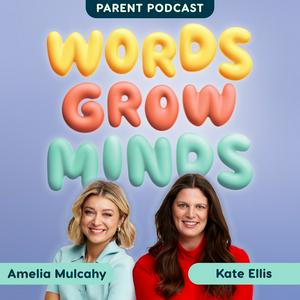
Get the free radio.net app
- Stations and podcasts to bookmark
- Stream via Wi-Fi or Bluetooth
- Supports Carplay & Android Auto
- Many other app features
Get the free radio.net app
- Stations and podcasts to bookmark
- Stream via Wi-Fi or Bluetooth
- Supports Carplay & Android Auto
- Many other app features


Words Grow Minds Parent Podcast
download the app,
start listening.
